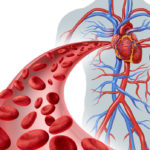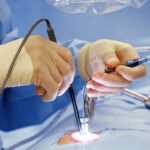
Recognizing Triple Vessel Disease Warning Signs: Preventing a Heart Attack
Triple Vessel Disease (TVD) is a serious condition where all three major coronary arteries are significantly narrowed or blocked. This can drastically reduce blood flow to the heart, increasing the risk of a massive heart attack. It’s essential to recognize the warning signs early to seek immediate medical intervention.
Warning Signs of Triple Vessel Disease:
Chest Pain (Angina):
A common symptom, often described as a squeezing or pressure sensation in the chest.
Pain may radiate to the arms, neck, jaw, or back.
Shortness of Breath:
Difficulty breathing during physical activity or even at rest.
May be accompanied by a feeling of suffocation.
Fatigue:
Unusual tiredness or weakness, even with minimal exertion.
Palpitations:
Irregular or rapid heartbeats, which can be unsettling and may occur alongside dizziness or lightheadedness.
Sweating:
Excessive sweating, often cold and clammy, unrelated to physical activity or temperature.
Nausea and Vomiting:
A feeling of sickness in the stomach or actual vomiting, sometimes mistaken for indigestion.
Dizziness or Lightheadedness:
A sense of faintness or vertigo, particularly during exertion.
Swelling in the Legs and Feet (Edema):
Fluid retention, causing swelling in the lower extremities, which may be a sign of heart failure associated with TVD.
What to Do If You Notice These Symptoms:
Seek Immediate Medical Attention: If you or someone else is experiencing these symptoms, especially chest pain that lasts more than a few minutes, call emergency services immediately.
Lifestyle Modifications: If diagnosed with TVD, adopting a heart-healthy lifestyle is crucial, including a balanced diet, regular exercise, quitting smoking, and managing stress.
Follow Medical Advice: Consistent monitoring and treatment, including medications, lifestyle changes, or possibly surgical interventions like angioplasty or bypass surgery, are critical for managing TVD and preventing a heart attack. Early detection and intervention can save lives, so it’s important to stay vigilant about heart health and consult with a healthcare provider if you have concerns.



